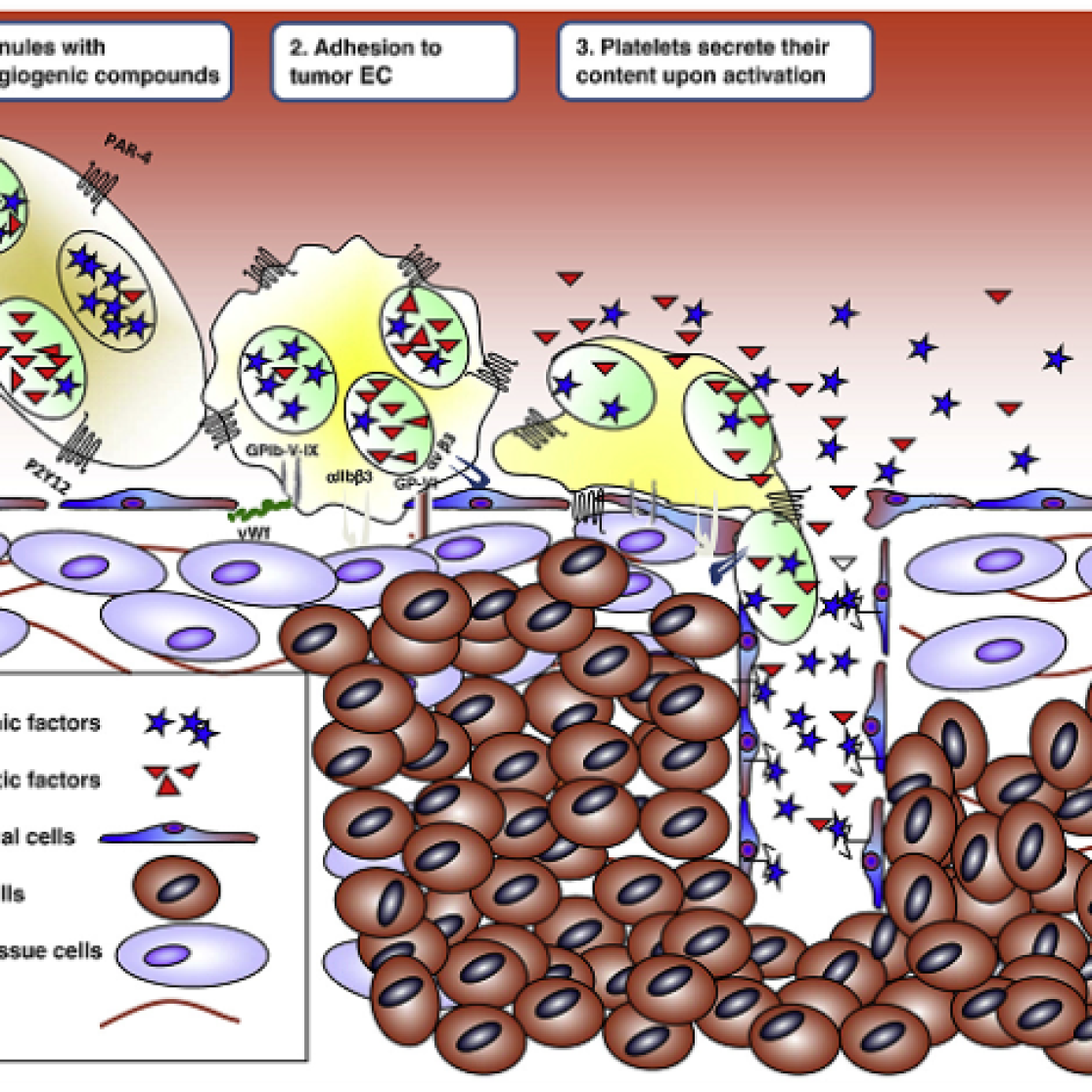Role of blood platelets in tumor angiogenesis and cancer progression
Platelets contain a range of pro- and antiangiogenic molecules, which are endocytosed and sequestered in different populations of α-granules. Furthermore, tumor endothelial cells are phenotypically and functionally different from healthy ones. In animal and cellular studies, platelets have been shown to adhere to tumor(like) endothelial cells resulting in their activation and the secretion of their pro- and antiangiogenic content. The overall effect of these platelet-endothelium interactions appears to be proangiogenic. Our hypothesis is that increased platelet adhesion to tumor endothelial cells results in enhanced tumor angiogenesis and tumor growth. It is the aim of this research project to investigate the actual role of platelets in tumor angiogenesis and cancer progression.
From: Sabrkhany S, AW Griffioen and MGA oude Egbrink (2011). The role of blood platelets in tumor angiogenesis. BBA Cancer Rev 1815: 189-196 (for reasons of clarity the scales of platelets and granules are not correct).

In this project, we explore the phenotypical and functional characteristics of platelets in patients with cancer and in matching controls. More specifically, blood of cancer patients will be sampled at different stages of the disease (before, during and after different types of treatment) in order to determine the relation between tumor load and treatment on the one hand and the activation status and granular content of their platelets on the other. Furthermore, platelet characteristics like adhesion molecule expression, platelet volume and concentration will be related to cancer stage, tumor type, volume, and survival.
This research is performed in a close collaboration between Siamack Sabrkhany (PhD student) and Mirjam oude Egbrink (Department of Physiology), Marijke Kuijpers and Johan Heemskerk (Department of Biochemistry), and Arjan Griffioen and Henk Verheul (VUmc, Department of Medical Oncology). It is funded by an NWO Mosaic grant.